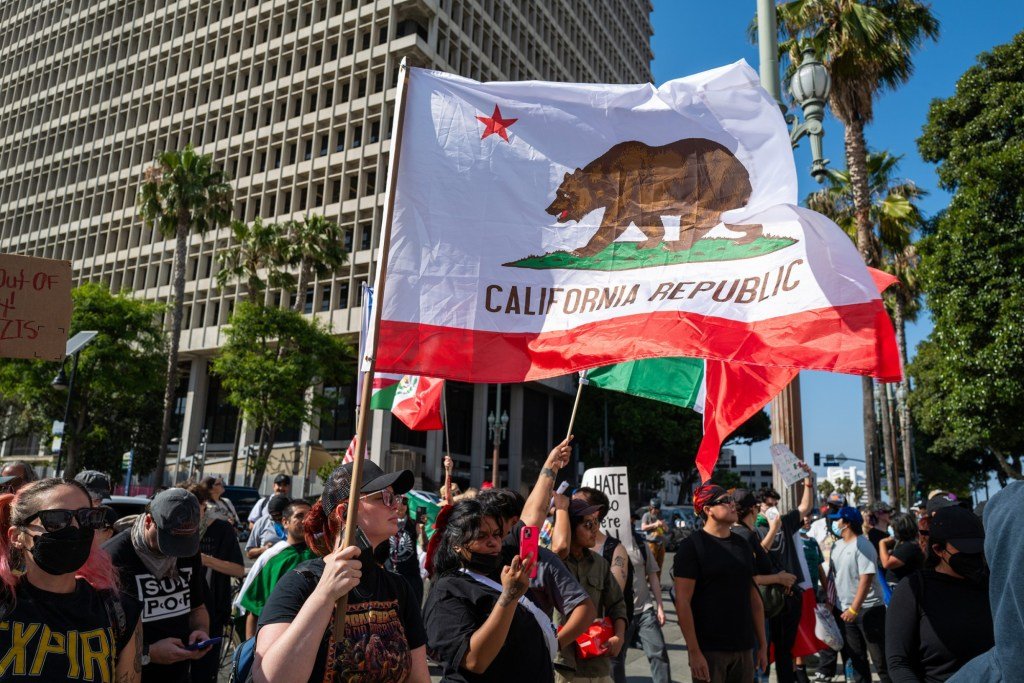The Hidden Crisis: How Immigration Raids are Disrupting Healthcare Access in Los Angeles
María, a 60-year-old patient at St. John’s Community Health, never expected a diagnosis of diabetes would lead her to the brink of a diabetic coma. For years, she maintained her blood sugar levels with diligence—until federal immigration raids cast a shadow over her life. Following a surge in enforcement actions, María decided to stay home, fearing detainment. With little food available, her diet dwindled to tortillas and coffee for five days, leading her to cancel a critical appointment meant to keep her health in check.
Fear Grips the Community
María’s story is not unique. As federal immigration policies shifted under the Trump administration, countless undocumented immigrants, like her, began to avoid essential health services. According to Jim Mangia, president and CEO of St. John’s, the cancellation and no-show rates for appointments soared to 30%, up from the usual 8-9%. “This is a public health crisis, not just an immigration issue,” Mangia emphasized, noting that both undocumented individuals and citizens are retreating from seeking care due to a climate of fear.
Health Implications
- Chronic condition management is compromised.
- Vaccination rates for children are falling.
- Screenings for sexually transmitted infections are being delayed.
A recent study by the Community Clinic Association of Los Angeles County revealed that as appointment cancellations rise, communities face a looming public health crisis. “Skipping appointments can have cascading effects,” explained Dr. Olusanya Bukola, a practitioner at St. John’s. “We’re not just failing individual patients; we risk putting entire communities at risk.” Bukola has seen the impact firsthand; the once-bustling waiting room now feels eerily empty, a stark contrast to pre-raid days.
Innovative Responses to Fear
In light of these challenges, St. John’s has adapted its services to reach patients where they are. The recent launch of its “Healthcare Without Fear” program allows medical staff to provide at-home visits, ensuring that critical care is accessible despite the fear of raids. “It’s a moral reflection of who St. John’s is,” said Mangia. “We believe that folks have a right to healthcare, regardless of their immigration status.”
Recent data shows that mobile and at-home services have mitigated some of the fear-driven cancellations, allowing for better continuity of care. For appointing conversion to telehealth, Bukola now spends hours each day connecting with patients, providing them reassurance amidst the uncertainty. “It’s reassuring them that healthcare should be their priority, regardless of what’s happening outside,” she added.
Legal and Community Advocacy
Community health clinics have stood their ground against federal immigration enforcement. Following an incident in Downey where agents approached a St. John’s mobile clinic, staff trained to respond proactively obstructed entry, demanding to see a warrant. This led to community members gathering, ultimately forcing the agents to withdraw. “Our training prepared us to protect our patients,” Mangia said, but the incident highlighted the pervasive threat faced by healthcare providers.
In collaboration with legal aid organizations, the Community Clinic Association is amplifying efforts to educate clinics on safeguarding patient rights while navigating enforcement pressures. “There’s a significant disconnect between health provision laws and the reality of operating in this climate,” observed Louise McCarthy, CEO of the association. “The laws mandate care for everyone, but fear inhibits access.”
Political Challenges Ahead
As health centers pivot in response to the crises, they confront additional hurdles: looming state budget cuts threaten to dismantle resources essential for care provision. Governor Gavin Newsom’s proposed $53 million reduction to Medi-Cal funding for undocumented individuals could cripple efforts at clinics such as St. John’s. “We are navigating devastating financial constraints while trying to provide essential services,” cautioned Mangia. A town hall meeting is planned next week to mobilize support from elected officials before the budget deadline.
In these “terrifying times,” as McCarthy described, health providers find themselves at a crossroads. They are tasked with not only attending to the immediate health needs of their communities but also advocating for the right to healthcare amid an unstable socio-political landscape. As raids continue, healthcare access for vulnerable populations hangs in the balance, leaving advocates to ponder how to break the cycle of fear and exclusion.
María’s story is emblematic of a larger issue plaguing Los Angeles: a healthcare system strained by fear and uncertainty. As innovative solutions emerge, the fight for health equity continues, resonating deeply through the lives of individuals for whom a visit to the doctor has become an act of bravery rather than a routine necessity.





